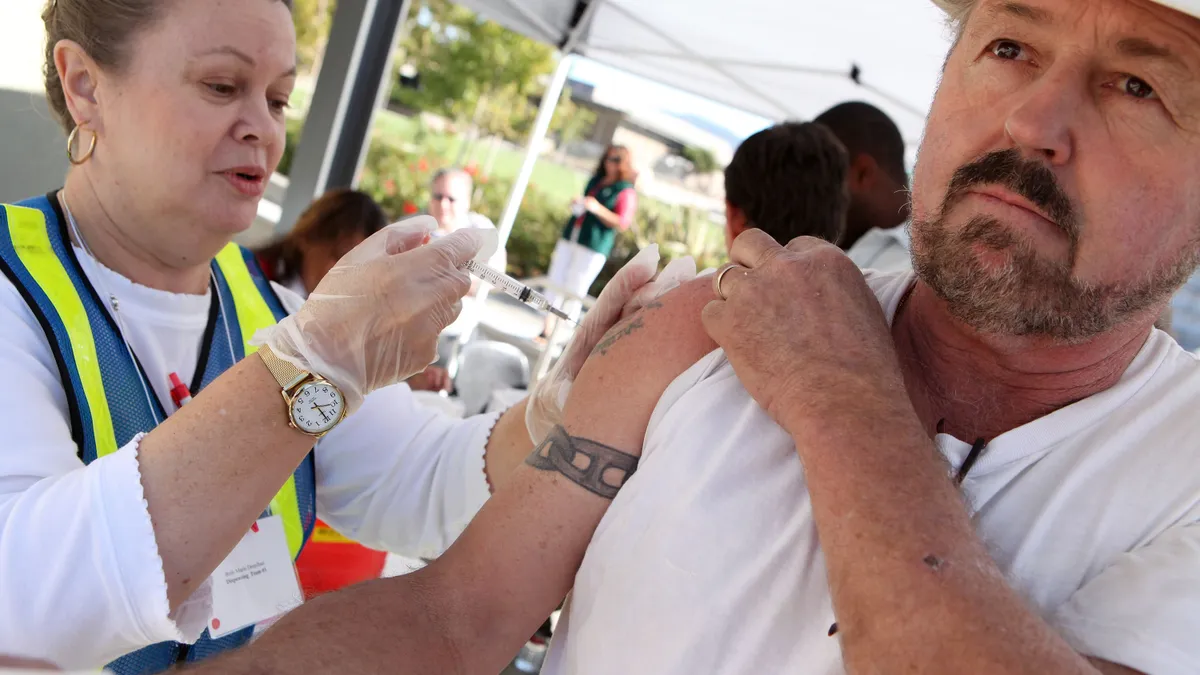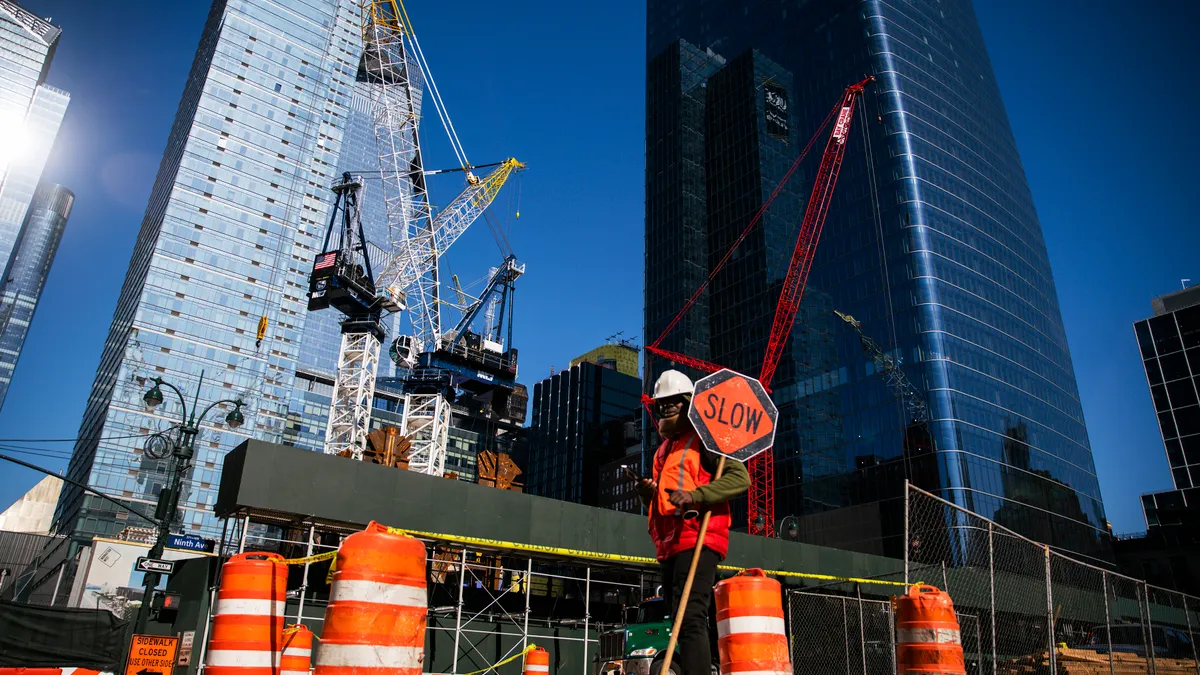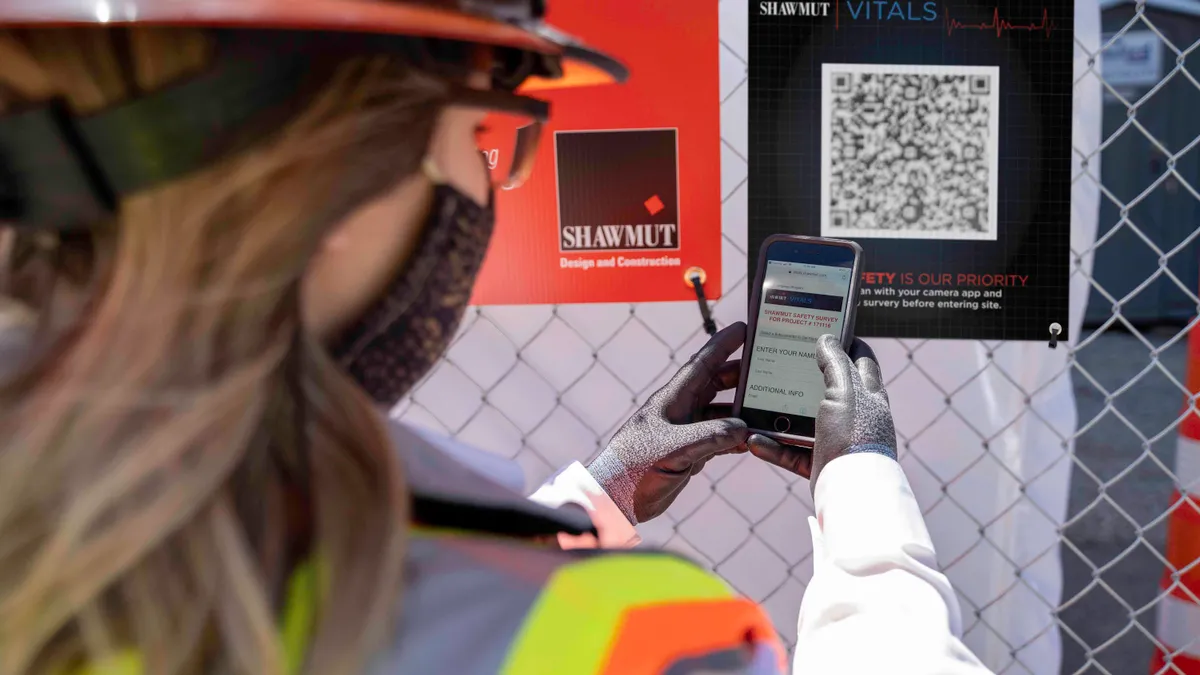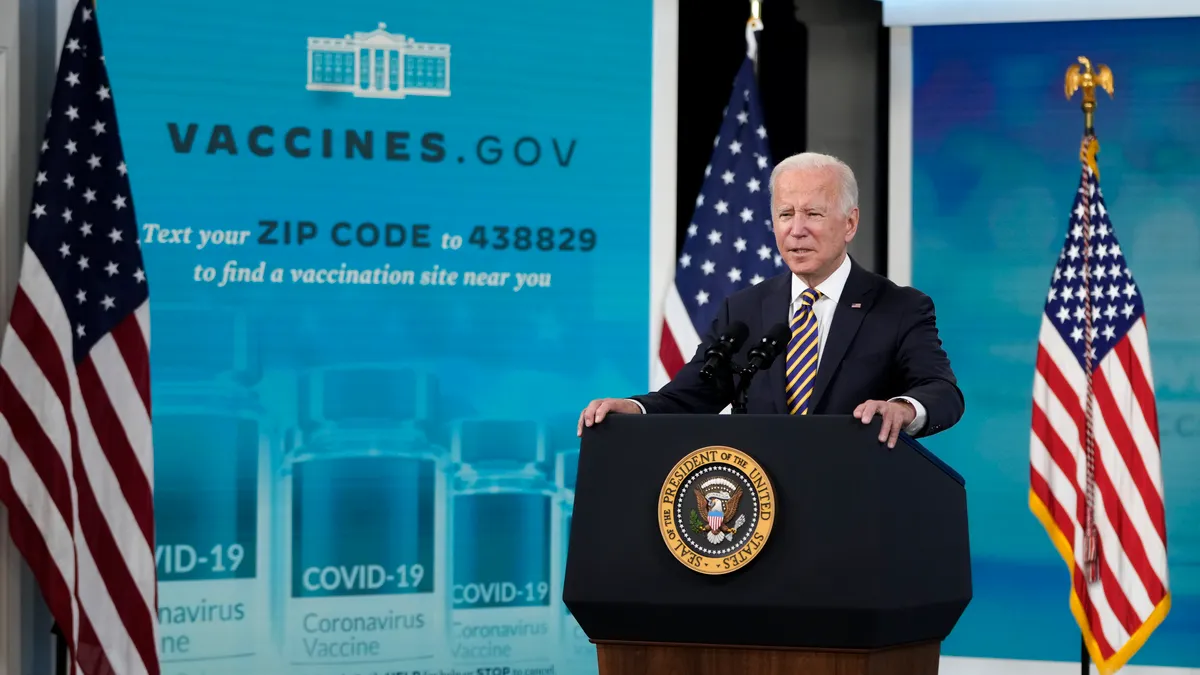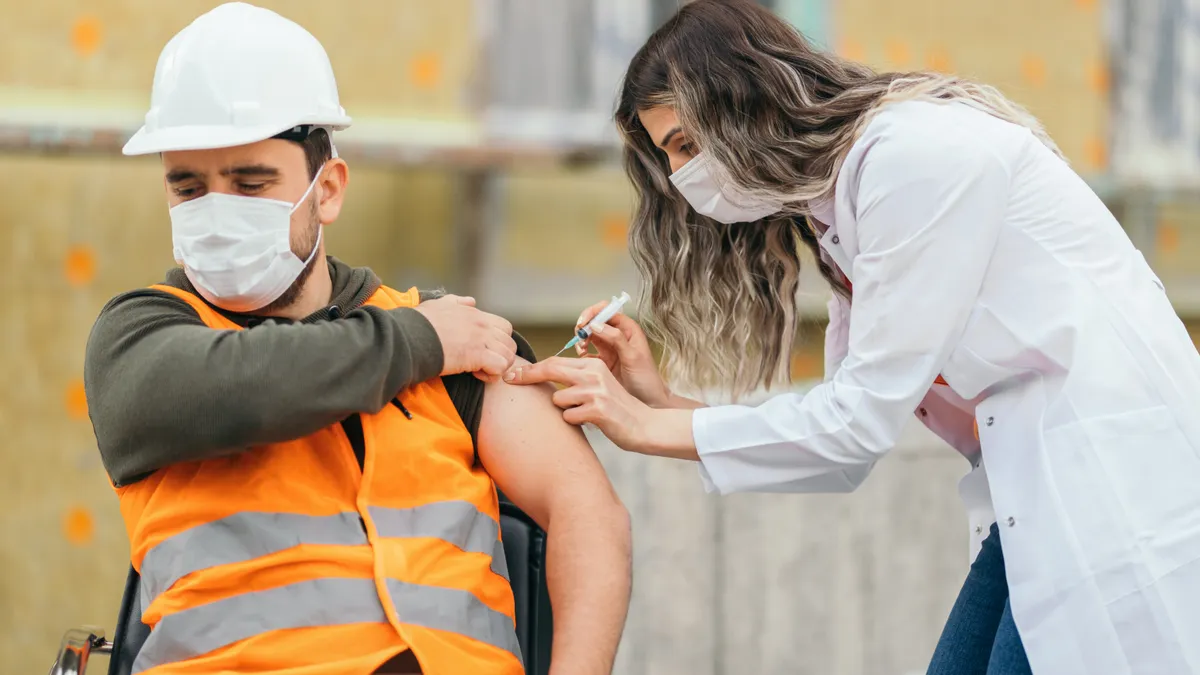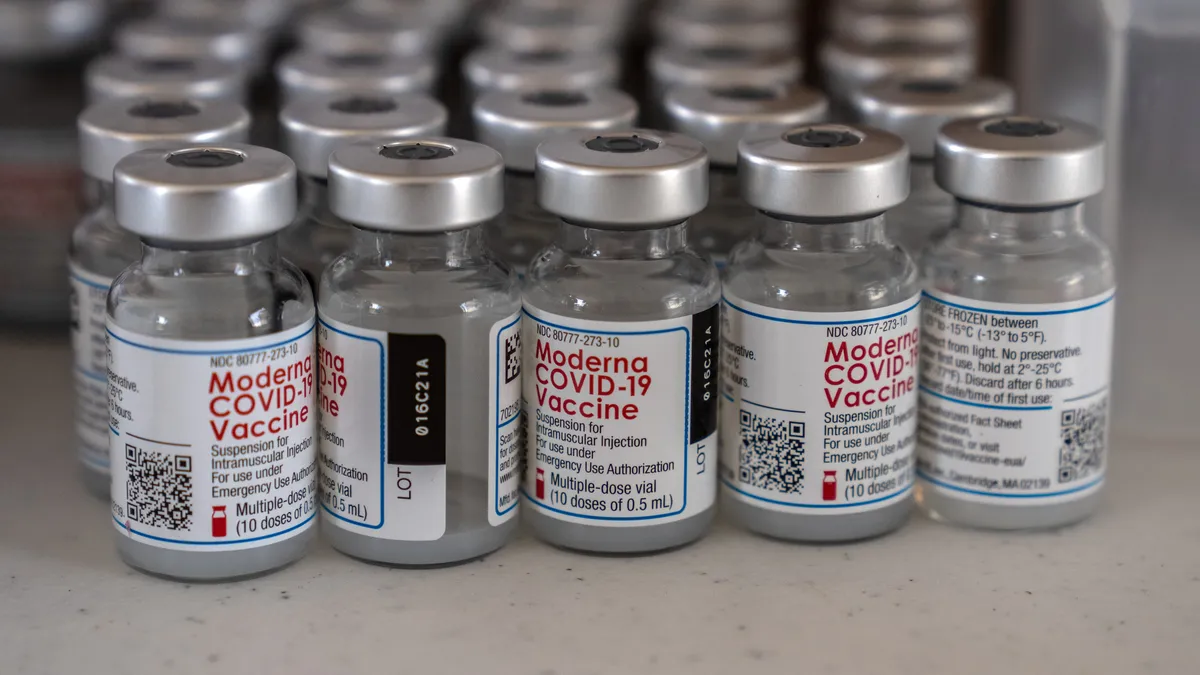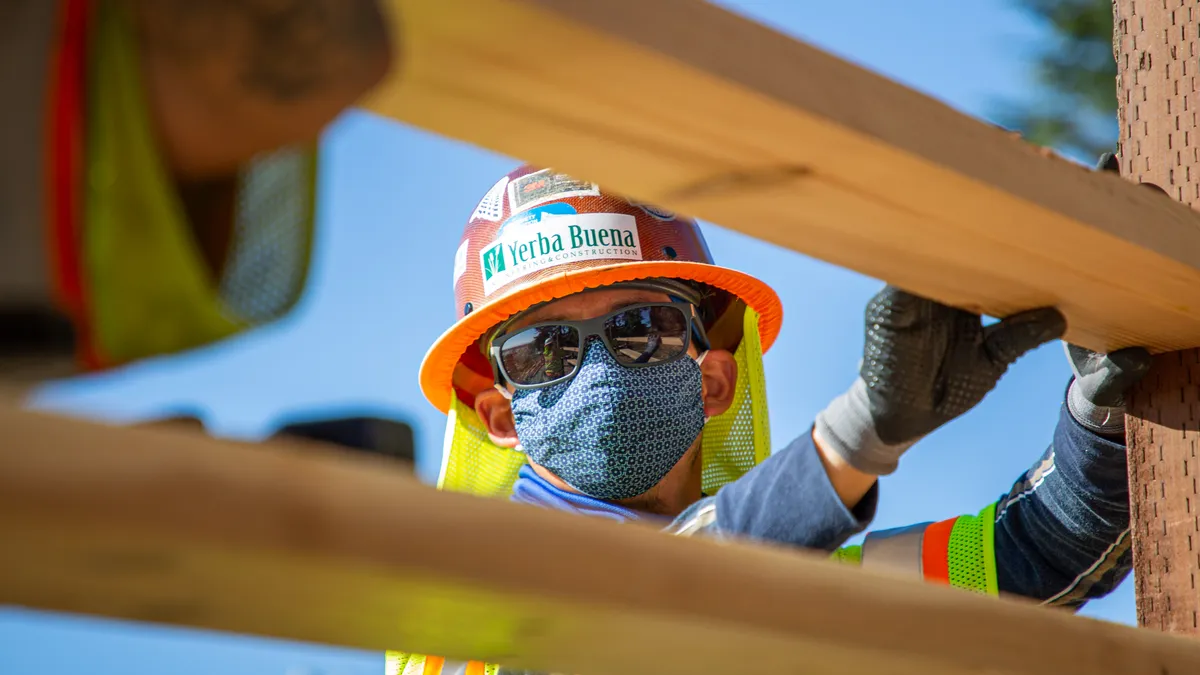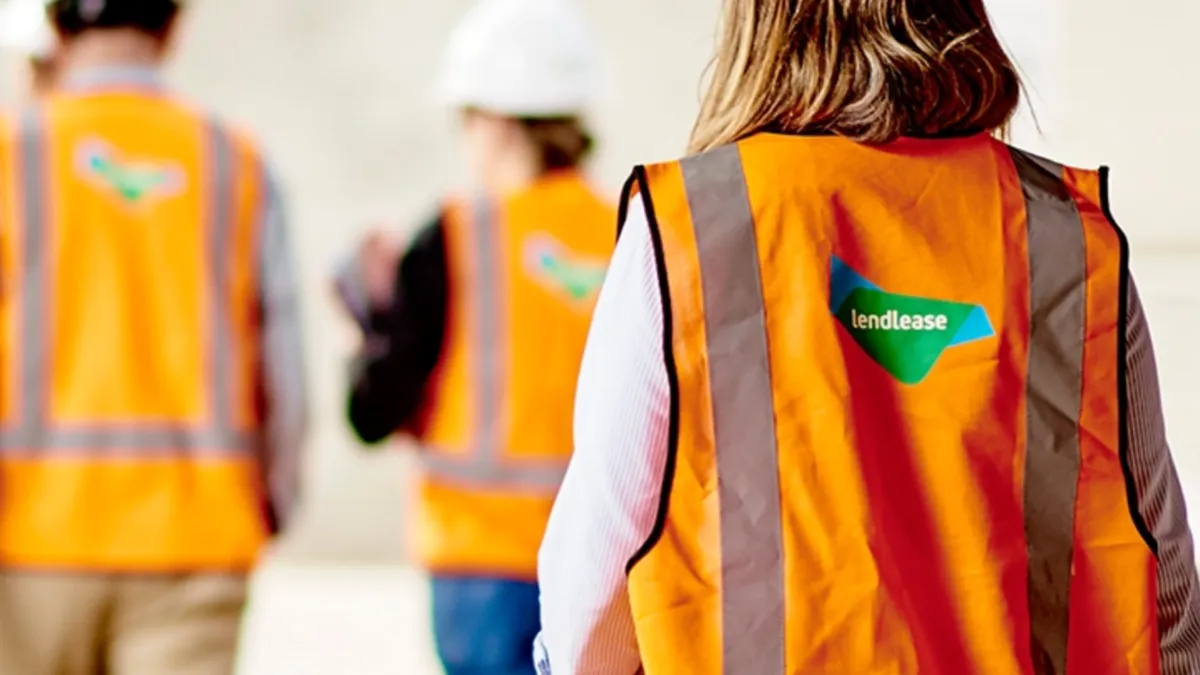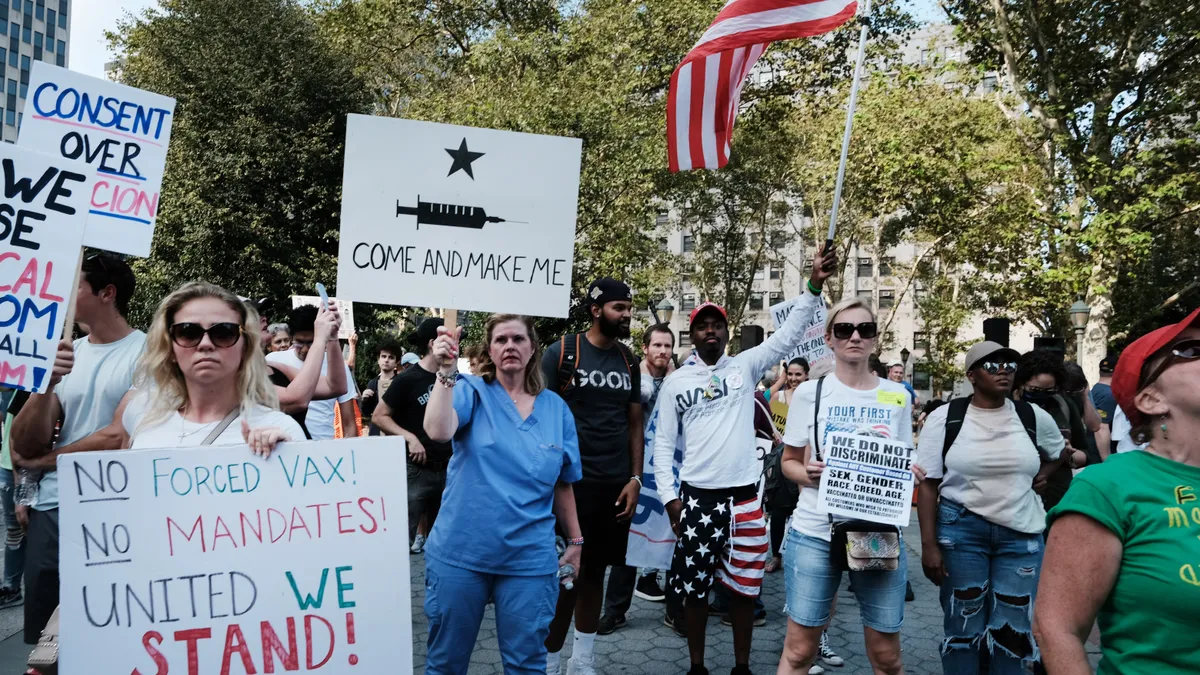Since the COVID-19 vaccine became widely available in April, the number of construction pros who have gotten the shots has increased by 33%, according to a Construction Dive survey of nearly 300 readers.
The number of respondents reporting at least partial vaccination has risen from 60% from a survey in the spring to 81% as of last week. This is higher than the national rate of about 59%.
Nevertheless, it appears that any further vaccination of the construction workforce will be minimal, as only 2% of the readers that have not yet been vaccinated say they plan to get the shots. Those who do not plan to get vaccinated have several reasons for their hesitancy, including religious considerations, health worries and a concern that the shots have not yet been approved by the Food and Drug Administration.
"The long-term effects of the vaccine are unknown," wrote one.
Other unvaccinated readers said they are not concerned about getting the virus and that even if they do get sick, the recovery rate among healthy individuals is high.
"I'm young enough that I don't need to worry about COVID, and anyone who does worry should have the vaccine and in turn not be worried about me," said one.
The most recent survey also pointed to another type of hesitancy: That of readers who are anxious about working with unvaccinated employees. About 60% of respondents said they are worried about their health due to a lack of vaccinations. Fifty-five percent said they are worried that unvaccinated workers could impact the success of their companies.
Sixty-nine percent said that they think construction workers are at high risk for contracting the coronavirus and so vaccines make sense for those in the industry.
"The construction industry has many health and safety requirements to which the workforce and companies must adhere," wrote one. "Given the conditions of the typical project site (transient workforce, tight quarters, etc.) it is not unreasonable to require the workforce to be vaccinated (excepting medical and religious reasons)."
Nevertheless, because much of construction work is outside, many readers said they think workers are not as at risk when on the job.
"I don't think construction workers are at high risk for contracting COVID on project sites. If they contract the virus it is more likely from community or familial spread," said one.
Some readers reported their own close calls with the virus, including one vaccinated reader who contracted COVID-19 last month.
"My doctor said the vaccine kept me out of the hospital. My wife did not catch it from me," he wrote.
Others said they have experienced repeated jobsite shutdowns due to COVID-19 exposure, leaving many projects behind schedule.
On the other hand, another respondent said that his company has been able to keep jobsites open throughout the pandemic, with only 15 people out of more than 200 people on the project contracting COVID-19, all of them recovering quickly.
Open for business
Some readers suggested that government or company vaccine mandates would help the industry avoid unnecessary outbreaks and jobsite shutdowns. But they acknowledged that not everyone is on board.
"The risk of COVID far outweighs any actual or perceived risk of the vaccine. In construction, we are always weighing risk vs. reward - this should be no different," said one.
Some respondents noted that vaccine mandates could become more important as more project owners and other clients ask for fully vaccinated workforces.
"The low vaccination rate is slowing down the country's return to normal operations. More people need to be vaccinated so our entire industry and the economy can get back to business," said one.
One reader pointed to the industry's challenges finding and retaining workers and said that the coronavirus has exacerbated the problem.
"The construction industry CANNOT afford losing any more time, productivity AND critically needed talent to COVID illness and death," the respondent said.
Still others said that the idea of mandating a shot for workers is unacceptable.
"Forcing people to do something they clearly do not want to do is wrong, and it shouldn't be taboo to say that," said one.
One respondent said that instead of mandating vaccines, his company is planning to offer a financial incentive for proof of vaccination and considering additional masking and testing for the unvaccinated.
"We are reluctant to make vaccines mandatory out of respect for individual liberty and legitimate concerns over serious side effects in some people. Individuals have the information and are making informed risk assessments concerning their own health," the reader said.



